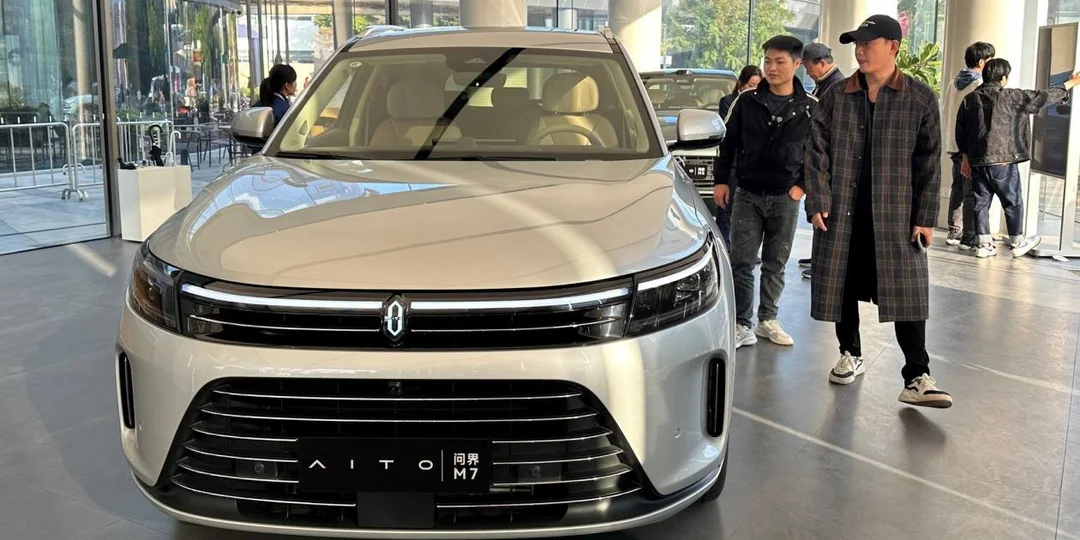In a striking turn of events that has rippled through the automotive industry, Chinese automakers are grappling with substantial production challenges. Central to these difficulties is the acute shortage of computing components from Huawei, a situation that has particularly impacted the burgeoning electric vehicle (EV) sector.
Key Highlights:
- Chinese automakers face significant production issues linked to a shortage of Huawei computing components.
- The global semiconductor shortage and supply chain disruptions exacerbate these challenges.
- Heavy reliance on Huawei’s HiSilicon division for key hardware exposes vulnerabilities in the automotive sector.
- These challenges impact China’s aspirations in the electric and autonomous vehicle markets.
- Automakers are exploring alternative sources for computing components to mitigate risks.

The Semiconductor Shortage Crisis: The global semiconductor shortage has significantly disrupted various industries, with the automotive sector among the hardest hit. This shortage is a result of surging demand coupled with supply chain disruptions, severely affecting Chinese car manufacturers known for their advanced EV and autonomous vehicle technologies. The inability to secure essential semiconductors has led to delayed productions and reduced manufacturing rates, causing a major setback in meeting market demands.
Dependency on Huawei’s HiSilicon Division: The reliance of Chinese automakers on Huawei’s HiSilicon division for advanced semiconductors has been a double-edged sword. While HiSilicon has been a leader in producing cutting-edge semiconductors for automotive computing systems, geopolitical tensions have led to sanctions that limit its access to crucial technologies. This has had a significant impact on the supply chain, affecting the entire Chinese automotive industry.
Geopolitical Tensions and Supply Chain Disruptions: Trade tensions between China and the United States have exacerbated these supply chain challenges. Restrictions on Huawei’s access to essential technologies have disrupted the supply of crucial computing components to the automotive sector. This situation highlights the vulnerabilities of the Chinese automotive sector, heavily reliant on a single technology provider, particularly one embroiled in geopolitical conflicts.
Impact on Electric and Autonomous Vehicle Development: China’s ambition to lead the global market in electric and autonomous vehicles heavily depends on the availability of such advanced computing components. The disruptions caused by the Huawei computing component shortage threaten to slow down the development and deployment of these technologies, potentially jeopardizing China’s position in the global automotive market.
Diversifying Supplier Base: In response to these challenges, Chinese automakers are actively seeking to diversify their supplier base. This move is seen as a necessary step to mitigate risks associated with dependency on a single provider. By diversifying their sources for essential components, automakers hope not only to enhance their resilience but also to promote healthy competition within the industry.
Broader Implications: The production challenges faced by Chinese automakers have broader implications for the global automotive industry. It highlights the need for automakers worldwide to develop more resilient supply chains and reduce dependency on single sources. This situation also underscores the importance of geopolitical stability in the global technology supply chain, especially as industries become increasingly reliant on high-tech components.
Looking Ahead: As the Chinese automotive sector navigates through these complex challenges, it is clear that diversifying the source of critical components is key to ensuring the sustainable growth of the industry. This is particularly crucial in the segments of electric and autonomous vehicles, where advanced computing systems play a pivotal role.
Conclusion: The situation faced by Chinese automakers serves as a cautionary tale for the global automotive industry. It underscores the importance of having a diversified and resilient supply chain, especially in industries heavily reliant on advanced technologies. As Chinese automakers strive to overcome these challenges, their experiences offer valuable insights into managing supply chain risks in a technologically dependent world.


















